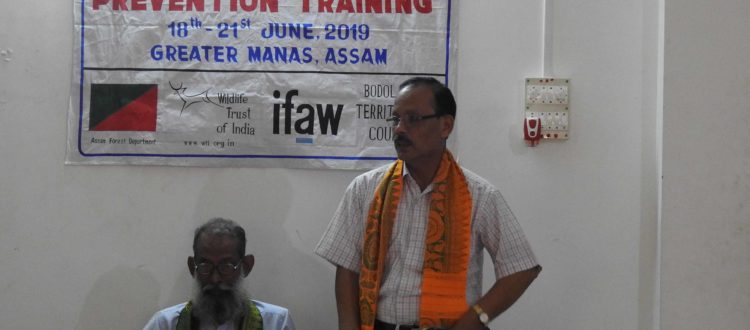WTI- IFAW organises wildlife crime prevention training in Greater Manas for frontline forest staff
Geater Manas, Assam, 21 June, 2019: With the rise in concern over issues related to hunting and trading in wildlife, the Wildlife (Protection) Act was enacted in 1972. Back then, it attempted to stop such practices in letter and spirit. This is understood with the fact that the Environment (Protection) Law was enforced in 1986, 14 years later than the Wildlife Protection Act (WPA). Wildlife conservation was preferred over environmental protection. Such was the commitment by the then leaders of the country. However, 47 years down the line, the effectiveness of WPA in curbing the instances of poaching is debatable.
A wise judiciary proportions its belief to the evidence provided. Like any societal crime, so it is in wildlife offences despite laws to safeguard such bids.

The conviction rates in wildlife offences are low in most of the states. Few of the reasons are witnesses turning hostile, courts taking little cognizance of such cases and poor documentation and case presentation by the department. WPA empowers the forest officials to participate in the investigation, recording evidence, seizures, arrests, etc. At the same time, these forest officials are not generally trained to do so. Such dichotomy leads to substandard documentation of wildlife crime related issues, and then in-turn weakens the prosecution. As the documentation remains weak, the defence has ample room for manipulation and distortion of facts and many a time the offender is acquitted. There is a pressing need to develop constructive evidence and systems that enable un-corruptible record keeping. One of the strategies on enforcement adopted by WTI is of upgrading evidence building skills and growing evidence and case management systems.

WTI has been conducting training workshops for frontline forest staffs. The staff is trained on relevant sections of WPA, detection, evidence collection and, record statement along with mock drills. Such training help in strengthening the case in front of the judiciary. One of such training was recently concluded in Manas NP from June 18 till June 21, 2019. A total of 10 frontline staff from the three ranges participated in the training. This included Range forest officer, Foresters and Forest guard, selected based on their current job profile. The staff was handpicked to discuss the pertinent provisions of the law, fine tune the offence report skills and refreshing their knowledge base.

“It is heartening to note that two cases registered in the trial court in 2018 from Kuklong Range of First addition to Manas has attracted a very good judgement (7 years’ imprisonment and Rs 50,000 fine), probably the first in the history of conservation in Assam and the credit has been given to the training WTI has imparted” said Mr R N Boro, Dy Director, Manas T R today in his inaugural address. The Assam Amendment has increased the punishment of SC 1 wildlife offence from 3-7 years imprisonment to 7-10 years and fine of Rs 50,000 maximum to 1 Lakh maximum in 2002.
WTI, in partnership with state forest departments, has frequently been involved in conducting such training. The recent convictions in Assam are strongly attributed to the efforts put in by WTI trainers and the forest officials. Such sentences are highly appreciable because historically, there have been very few. We expect the rate of convictions to go further up in the future because of such regular workshops and legal assistance.









